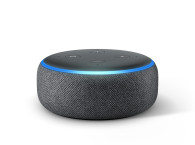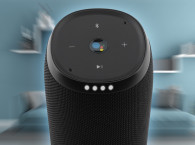
The latest report from SAR Insight & Consulting, titled "The Voice Algorithm Software Ecosystem" reveals that the significant strides made by the voice assistant market is having a huge impact on the voice user interface technology.
“Voice software algorithm providers can be grouped into two categories: voice user interface and voice enhancement,” Peter Cooney, Principal Analyst and Director of SAR Insight & Consulting, says. “Very few companies can do both categories well, which means voice user interface and voice enhancement algorithm providers tend to form strategic partnerships. Furthermore, voice software algorithm providers partner with IC hardware providers as well as OEMs.
“We also expect to see an increase in the use of in-house voice assistant solutions, making it a difficult market for third-party algorithm suppliers.”
Amazon and Google continue to invest heavily in voice software. Chip vendors are adding more capabilities to provide in-house software algorithms, and this is especially noticeable for voice enhancement algorithms; Cirrus Logic, DSP Group and Qualcomm are good examples. There are also many third-party software vendors providing enhanced solutions for voice UI and voice enhancement such as DSP Concepts, ForteMedia and Sensory.
Application processors are now the preferred hardware choice over standalone voice processors to implement voice software algorithms, and this is especially noticeable in the smart speaker segment. This is due to the complexity of the hardware system.
Machine learning has also made a significant impact on voice technology; deep learning will help improve the voice software performance on both voice UI and voice enhancement. Accordingly, changes in hardware architecture will better support deep-learning based algorithms.

“Communication technology has evolved from human-to-human communication to human-to-machine communication,” Peter Cooney adds. “Recently, with the advancement in machine learning, the technology is evolving from human-to-machine communication to environment-to-machine communication. Therefore, the input technology has evolved from voice enhancement to voice UI and acoustic UI.”
According to the latest report from SAR Insight & Consulting total voice software unit shipments are expected to increase significantly to 2024, globally. Market segments include: mobile, wearable devices, home, automotive, computing and emerging markets.
These are some findings from SAR Insight & Consulting’s recently published study on “The Voice Algorithm Software Ecosystem” which is published as part of its Audio Devices, Technologies & Components Service. For further information, please contact Peter Cooney, Principal Analyst & Director, SAR Insight & Consulting +44 1392 580 960.
www.sarinsight.com






